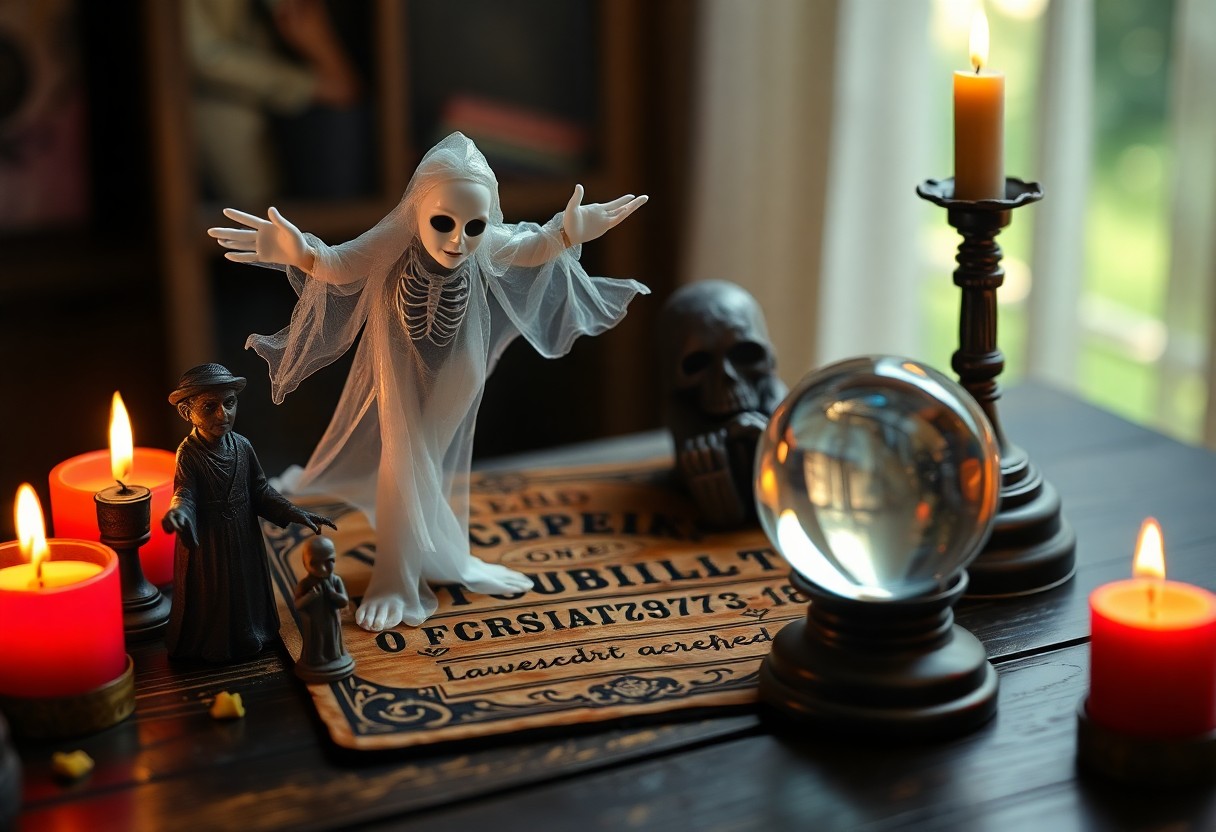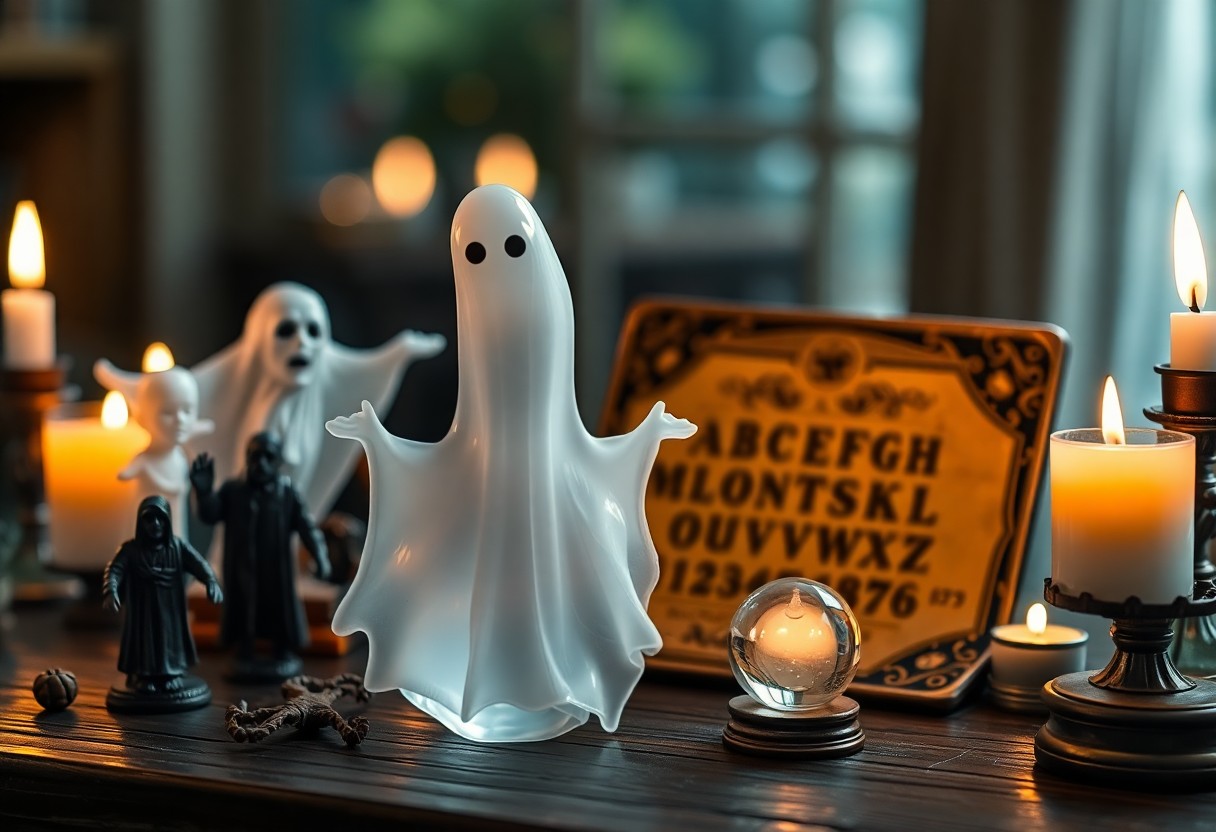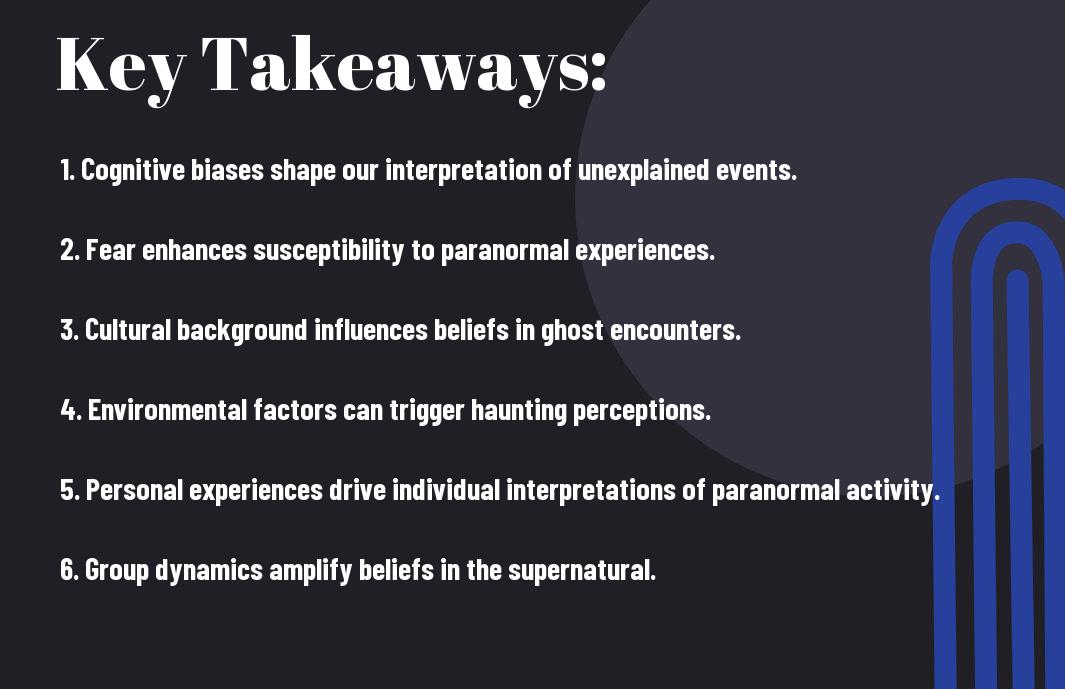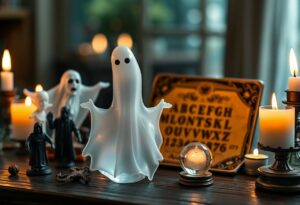You may have found yourself feeling a chill run down your spine during a ghost story or questioning the mysteries behind a shadow in the dark. Understanding the psychology behind these ghost encounters and paranormal beliefs can shed light on your experiences and those of others. In this post, we will explore how your thoughts, emotions, and cultural influences shape your perceptions of the supernatural. For further insights, you can listen to the Speaking of Psychology: Ghosts, Ouija boards, and ESP podcast, which probes into these fascinating themes.
Historical Perspectives on Ghost Encounters
While ghost encounters have permeated human history, spanning ancient civilizations to modern times, the beliefs surrounding them often reflect the cultural and societal contexts of their era. From the spirits of deceased loved ones in ancient Egypt to the shadowy apparitions in Victorian literature, your understanding of ghostly encounters can be enriched by exploring how these narratives have shaped and been shaped by different historical epochs.
Cultural Variations in Ghost Beliefs
Variations in ghost beliefs are evident across different societies, each reflecting unique cultural values and norms. In some cultures, ancestral spirits are revered and consulted for guidance, while others may view ghosts as ominous harbingers of misfortune. By examining your own cultural background, you can appreciate how these beliefs influence not just personal experiences but also community rituals and practices surrounding death and the afterlife.
Historical Accounts of Paranormal Experiences
About historical accounts of paranormal experiences, they serve as fascinating windows into the past, often revealing how societies interpreted unexplained phenomena. From well-documented hauntings in old pubs to the eerie tales recounted by historical figures, these stories can provide you with insight into the fears and fascinations of people in different times.
Accounts of paranormal experiences have persisted throughout history, often documented in diaries, newspapers, and religious texts. These narratives enable you to explore how specific events were interpreted through the lens of various cultural understandings of the supernatural. You’ll find that witnesses often attributed these encounters to divine intervention, spiritual unrest, or even psychological unrest, leading to a rich tapestry of human experience that continues to intrigue you today.

Psychological Frameworks
It is vital to understand the psychological frameworks that underpin your beliefs about ghosts and paranormal activities. Researchers explore various dimensions, from cognitive biases to cultural influences, shedding light on how your perceptions may shape your experiences. For a deeper inquiry into this topic, you might find insights in Are ghosts real? A social psychologist examines the ….
Cognitive Dissonance and Belief Formation
Above all, cognitive dissonance plays a significant role in how you form and maintain beliefs about the paranormal. When faced with contradictory evidence, you may experience discomfort, prompting you to alter your beliefs or rationalize your experiences instead of rejecting them.
The Role of Memory in Paranormal Experiences
An intriguing factor in your perception of the paranormal is how memory works. Memories are susceptible to distortions and can be influenced by various factors, including emotions and external suggestions, which significantly shape your understanding of ghostly encounters.
Plus, it’s important to note that the malleability of memory means that your recollections of paranormal experiences can evolve over time. This fluidity can lead you to perceive ordinary events as extraordinary or supernatural, further solidifying your belief in ghosts. As you navigate these experiences, your mind is actively reconstructing memories, sometimes transforming mundane details into vivid manifestations of the paranormal.
The Influence of Social Factors
Clearly, social factors play a significant role in shaping your beliefs about ghosts and the paranormal. Your environment and social interactions can greatly influence your experiences and perceptions. Key elements include:
- The cultural context of your upbringing
- Conversations with friends and family about the supernatural
- Participating in paranormal activities as a group
Recognizing these influences may help you understand why you hold specific beliefs or have certain experiences related to the paranormal.
Socialization and Shared Beliefs
Factors such as family traditions, community norms, and peer influence contribute to the formation of shared beliefs in the paranormal. These social dynamics often create a framework in which ghost encounters are understood and validated. When you engage with others who share similar views, your own beliefs can become reinforced, and experiences may be interpreted through a communal lens.
Media’s Role in Shaping Perceptions of Ghosts
About how you view ghosts and the supernatural is heavily influenced by media representations. Films, television shows, and even social media platforms introduce and reinforce various narratives about the paranormal, often shaping your expectations and interpretations of experiences related to ghosts.
Indeed, the impact of media on your perceptions of ghosts cannot be overstated. Sensationalized portrayals of paranormal activities in movies and television can create vivid images in your mind, leading you to interpret your surroundings through a lens prompted by entertainment rather than reality. Such depictions often blur the lines between fact and fiction, making it easy for you to connect your experiences with the narratives you consume. The pervasive influence of media means that your understanding of the paranormal is continuously molded by what you watch, read, and engage with, reinforcing both skepticism and belief in ghostly encounters.

Neuroscience and Perception
Not all ghost encounters stem from an otherworldly source; instead, many can be traced back to how your brain perceives and interprets unusual stimuli. Neuroscience contributes to understanding how sensory input and cognitive processes intertwine, affecting your perception of the supernatural. When faced with ambiguous situations or stressors, your brain may fill in gaps, leading to interpretations that include paranormal elements. This phenomenon can distort reality, influencing your beliefs and experiences surrounding ghostly encounters.
The Brain’s Response to Fear and Supernatural Stimuli
Beside the instinctual flight-or-fight response, your brain reacts to fear and supernatural stimuli in ways that amplify your experiences. Neuroscientific research indicates that the amygdala, responsible for detecting threats, becomes highly active in eerie environments. This heightened state can trigger anxiety, causing you to interpret innocuous phenomena as ghostly presences, revealing the power of your brain’s response to fear.
Sleep Paralysis and Hallucinations
Brains have the potential to create vivid, often frightening experiences when you experience sleep paralysis. This phenomenon occurs when you are temporarily unable to move while falling asleep or waking up, typically accompanied by hallucinations that can feature perceived intruders or ghostly figures. These hallucinations are fueled by sleep-related brain activity, blurring the line between wakefulness and dreams.
Supernatural aspects of sleep paralysis can be rooted in your brain’s wiring and the biological processes occurring during the sleep cycle. During episodes, your body is physically immobilized, but your mind remains active, leading to intense hallucinations and a strong sense of presence. The combination of a half-asleep state, looming fear, and sensory deprivation can create the perfect storm for perceptions of ghostly encounters, significantly affecting your understanding of reality and the paranormal.
Debunking Myths and Misconceptions
Despite the allure of ghost stories and supernatural encounters, many prevalent myths and misconceptions cloud your understanding of the paranormal. Common beliefs often stem from cultural narratives or sensationalized media portrayals that exaggerate the nature of ghostly phenomena. By critically examining these notions, you can separate fact from fiction and gain a clearer perspective on the true essence of your experiences.
Scientific Explanations for Common Experiences
With various scientific explanations available, you can understand that many so-called paranormal experiences arise from psychological or environmental factors. For instance, sleep paralysis, infrasound, and electromagnetic fields can create sensations that feel eerie or otherworldly. By exploring these phenomena, you are better equipped to confront your fears and differentiate between genuine encounters and mere misinterpretations of reality.
The Impact of Skepticism on Belief
Impact is a powerful force in shaping your beliefs, particularly when it comes to the paranormal. Having a skeptical viewpoint allows you to critically analyze ghost encounters and distinguish between credible evidence and anecdotal claims. This skepticism can serve as a defense mechanism, ensuring that your beliefs are rooted in rationality rather than fear.
Consequently, embracing skepticism fosters a healthier mindset toward ghost encounters. This does not mean dismissing all experiences out of hand; instead, you can approach them with a sense of curiosity and inquiry. By weighing personal experiences against scientific understandings, you become more resilient in facing uncertainties, ultimately empowering your belief system while allowing room for exploration and questioning. This balance can help you find meaning in the unknown without succumbing to unsubstantiated fears.

Summing up
With these considerations, you can better understand the psychology behind ghost encounters and paranormal beliefs. Your perceptions and experiences with the unknown are influenced by a range of factors, including cognitive biases and emotional states. By exploring resources such as Why Some People See Ghosts But Others Never Do, you can gain further insight into why some individuals are more attuned to these encounters than others. Your belief systems, cultural background, and psychological profile all play a significant role in shaping your experiences with the paranormal.


